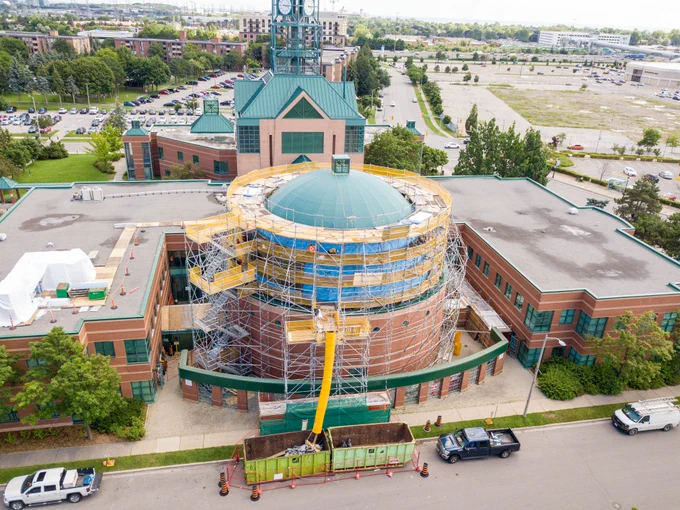Pickering seeking federal funding to accelerate housing starts
Published August 11, 2023 at 11:01 am

With the dire need for housing starts an ongoing concern, coupled with the (allegedly) shady greenbelt land swaps by the Province now dominating the news-scape, the City of Pickering is looking to jumpstart its own housing objectives the old fashioned way: with a little help from the federal government.
City staff have put together an application to the Canada Mortgage and Housing Corporation’s Housing Accelerator Fund and will be seeking Council’s approval at a special meeting of Council August 18.
(That meeting will be electronic only, as the Council chamber dome roof is near the mid-point of a two month replacement project. Members of the public can still watch the meeting by viewing the livestream.)
The Housing Accelerator Fund, a $4 billion federal program approved in the 2022 budget, will provide incentive funding to local governments to encourage initiatives aimed at increasing housing supply. It also supports the development of complete, low-carbon and climate-resilient communities that are affordable, inclusive, equitable and diverse.
The objective is to accelerate the supply of housing across Canada – at least 10 per cent above current growth rates – with a goal of achieving an additional 100,000 dwelling units.
The program, approved before Bill 23 and other provincial legislation that reduced the power of municipalities in land use planning was passed, is intended to assist municipalities in achieving “transformational change” regarding planning and development approvals, including “enhancing certainty” in the approvals and building processes. The changes are expected to result in short term increases to local housing supply, while also providing long term opportunities to meet future housing needs.
Other key objectives of the program, which runs until 2027, are:
- supporting the development of complete communities that are walkable, consisting of appropriate residential density and a diverse mix of land uses, providing access to a wide variety of amenities and services through public and active transportation;
- supporting the development of affordable, inclusive, equitable and diverse
communities, that encourage clear pathways to achieving greater socio-economic
inclusion, largely achieved through the equitable provision of housing across the
entire housing spectrum; and - supporting the development of low-carbon and climate-resilient communities.
The funding provided is determined on the basis of per unit amounts, with three components of the funding framework: base funding, top-up funding and an affordable housing bonus, which is designed to reward applicants who can increase their share of affordable housing units.
The funds can also be used to support housing, including housing and community related infrastructure, such as public transit, brownfield redevelopment, bicycle lanes, firehalls and green space.
The City’s application for funding, according to the report to Council, has been developed to meet the program’s evaluation criteria, funding structure and have the largest impact on housing initiatives in Pickering, focusing on strategic growth areas and projects that could advance affordable and rental developments.
The CMHC application is required to be submitted by August 18 – two days after the special Council meeting – with successful applicants notified sometime this fall.
The exact amount of funding available to individual applicants has not been determined.
INdurham's Editorial Standards and Policies




